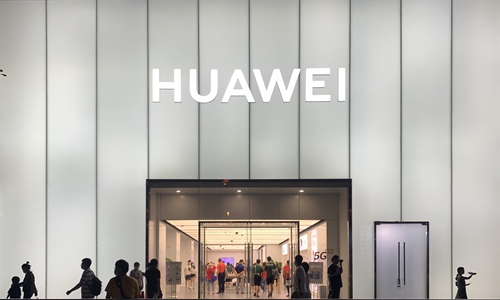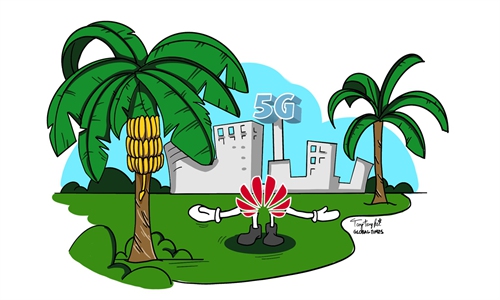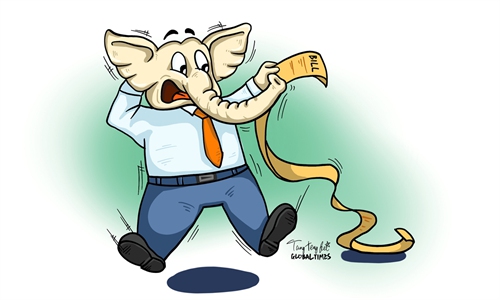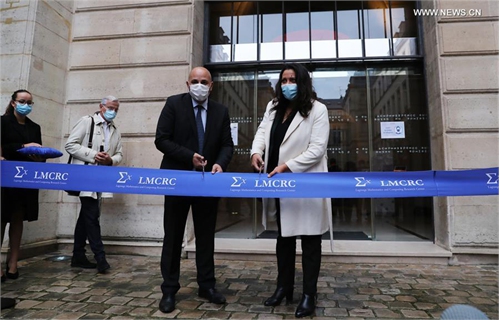Huawei rivals Apple with ‘most powerful’ phone
Chinese consumers scramble for Kirin-equipped Mate 40

Huawei Photo: Deng Zijun/GT

Graphics: GT
Chinese tech giant Huawei will launch the much-anticipated Mate 40 - likely the last of its phones to be equipped with its proprietary Kirin chips - on October 22, while Apple is expected to launch its iPhone12 series on Wednesday.
Industry players said the competition between the two major brands is more complicated amid the China-US technology battle, as Huawei's latest series will no doubt be snapped up as soon as it comes to market, and many dealers will be hoarding the new devices.
"Used to be an Apple fan, I'm afraid Apple started to lose appeal for me after the iPhoneX, as its updates and functions disappointed me, especially compared with more competitive and fancier Chinese brands," Zhao Liying, a Beijing-based white-collar worker, told the Global Times on Sunday.
"Moreover, the image of US brands, such as Apple, has been impacted by the US government' reckless attack on the Chinese tech industry. The Trump administration is causing Chinese consumers to abandon Apple phones as long as we have other alternatives," Zhao said.
Nevertheless, analysts said as the new iPhone-12s are expected to be 5G-capable, they will have good global sales prospects. Since the Huawei Mate 40 series will not have Google apps on board, its overseas sales may still be severely restricted.
"Huawei does not need to compete with Apple at this stage, as its functions, powered by its advanced, industry-leading Kirin 9000 chips, will no doubt be the 'most powerful' mobile device," Xiang Ligang, director-general of the Beijing-based Information Consumption Alliance, told the Global Times on Sunday.
Richard Yu Chengdong, CEO of Huawei Consumer Business, said that the Kirin 9000 chipset will have more powerful 5G capabilities, artificial intelligence capabilities, and more powerful CPU and GPU capabilities.
Xiang noted that with the coordination of base stations and its telecommunications equipment, Huawei will also have a better and more stable signal than Apple.
On September 15, the US government cut off some high-end chipset supplies to Huawei, dealing a heavy blow to the company's Kirin chips which weigh on its high-end flagship smartphones. Some industry representatives have speculated that Huawei might abandon its high-end smartphone business in a worst-case scenario under the US government ban.
It's not clear how big a stockpile Huawei has of mobile phone chips, and how many Mate 40 series it can offer to the market. On September 23, Huawei's rotating chairman Guo Ping said in a media interview that the specific data was being evaluated.
"One thing is for sure, Huawei will not abandon its high-end mobile phone business," Xiang said.
According to Chinese media reports, Taiwan Semiconductor Manufacturing Co (TSMC), the world's largest contract chipmaker, has obtained a permit from the US Department of Commerce for a limited supply to Huawei.
Asked to react to the Chinese report, TSMC said the company did not comment on unfounded market speculations.
"TSMC does not have a concrete plan now as everything is uncertain ahead of the US presidential election, but solutions will emerge after November 3," Xiang said.
China's Unreliable Entity List will also play a vital role amid the technology fight with the US, Ma Jihua, a veteran industry analyst and a close Huawei follower, told the Global Times on Sunday.



